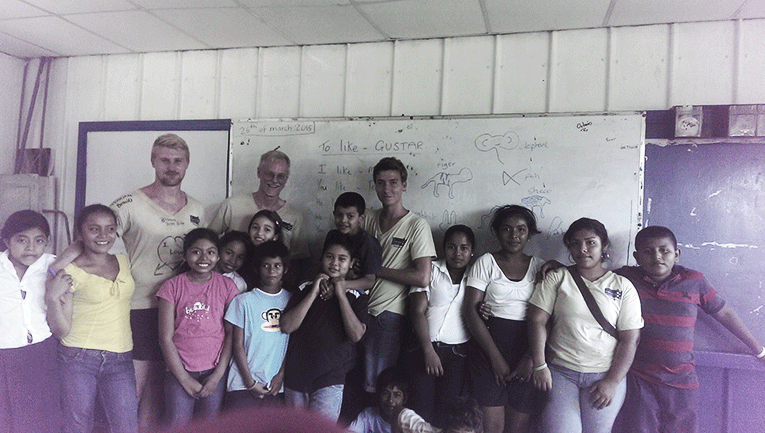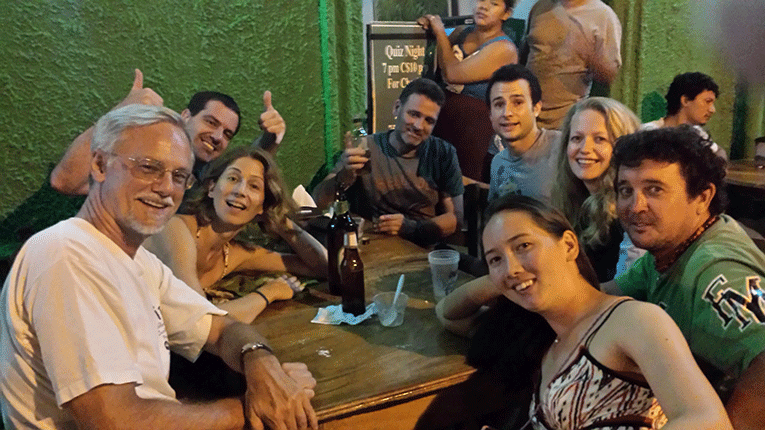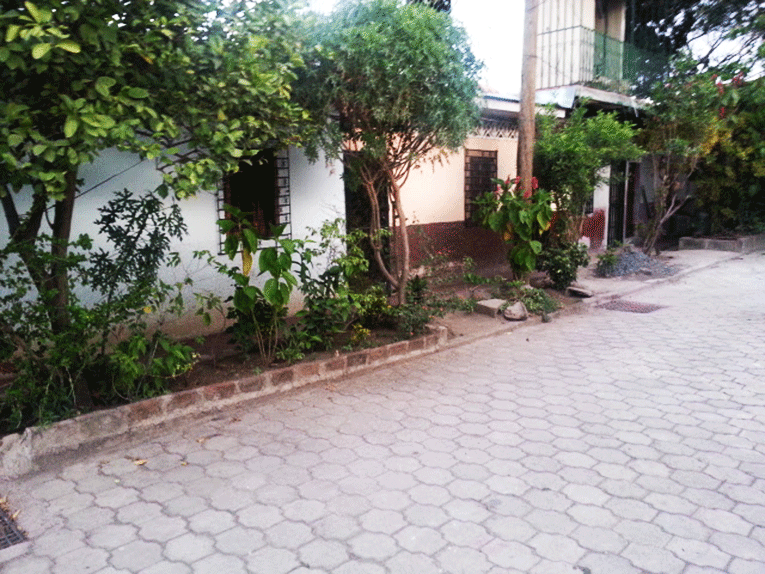Alumni Interview with Wendell Blubaum
Here's what it's like to go on a La Esperanza Granada program!

Wendell BlubaumParticipated in 2015Volunteer Abroad | Nicaragua
Wendell was born and raised in Indiana. He attended Indiana State University and earned a bachelor’s degree in Spanish, and then went on to complete his master’s degree in applied linguistics at Indiana University. After spending four years in the Peace Corps in the Dominican Republic and Ecuador, he taught English at multiple universities in the Middle East, Asia, and Europe. Since retiring, he has volunteered in both Zimbabwe and Nicaragua.
Why did you decide to apply for an international program?
As a teacher of English as a second language, I have lived and worked abroad for my entire adult life. My first experience abroad was as a Peace Corps volunteer in Latin America. Now that I have retired I am happy to have the possibility to volunteer again, and to teach English to people who might not otherwise have the possibility to study.
Why did you choose La Esperanza Granada?
I knew that I wanted to volunteer in Latin America because of pleasant experiences there when I was a young man. After finding a site on the internet, which lists and explains free and low-cost volunteer opportunities in Latin America, I did quite a thorough study of the programs on offer. The program I chose, La Esperanza Granada in Nicaragua, suited me because it is dedicated to improving educational opportunities for impoverished children, and it seemed well organized with respect to dealing with foreign volunteers.

Happy 5th Graders with volunteer teachers
What was your favorite part about Granada?
Granada is a beautiful and reasonably safe city. There are lots of different choices of places to eat, all of which are reasonably priced. From Granada it is possible to travel cheaply and conveniently to lots of other interesting locations in Nicaragua and even Costa Rica.
What surprised you most about Nicaragua?
I was surprised to discover that Nicaragua is the second poorest country in the Western hemisphere. I was also surprised by the amount of obesity in the country, which is probably attributable to the amount of carbohydrates (corn tortillas, rice, sugar) in their diet.
What made volunteering with La Esperanza Granada unique?
La Esperanza Granada provides educational opportunities for children of all ages. Volunteers can work as classroom assistants in kindergarten or first grade. They can also teach English in local schools to children in grades four through six. Besides providing human resources, the program also offers school uniforms and supplies for the children and the participating schools. With the help of sponsors, the program also has the funds necessary to provide scholarships to outstanding secondary and university students. In return for financial assistance, the sponsored university students help orient and assist foreign volunteers in their efforts.
How did local staff support you throughout your program?
The staff have dealt with hundreds of volunteers over the years, and as a result they are very efficient in their operations. Local university students who are sponsored by the organization work in the office, helping the director handle the finances and logistics of the program. They also support volunteers with problems that arise and go to the schools with the volunteers, where they act as liaisons with the local school teachers and administrators. Volunteers are also provided subsidized housing, if they so wish.
What's one thing you wish you would have done differently during your time in Granada?
I suppose that I would have traveled more in the country if I were going to do things differently. Although I was in Nicaragua for two months, I stayed in the city of Granada virtually the entire time.
Describe a day in the life of your program.
As an English teacher, all my classes were in the afternoon. Each morning after having breakfast and shopping I would make lesson plans for the four classes that I would be teaching later that day. At noon I would meet the three other teachers in the English-teaching team and we would take the 40-minute walk to the schools on the outskirts of town.
Once there we would teach grammar, sing songs, and play language games with the children. The younger children especially liked to sing simple songs in English; for example, we sang "Old McDonald Had a Farm," after teaching them the names of animals.
In the evening I would go to a local restaurant which I liked, and then go for a walk or go to the park to chat with locals, other volunteers, and tourists. One night a week there was a pub quiz at an Irish pub. Most of the volunteers participated in the quiz, as did many tourists, and the profits were donated to the organization. On Sundays I liked to go to the park to listen to concerts by local bands and watch the people dance.

At the pub quiz, having fun while raising money
What was one of your favorite parts of your program?
A childhood friend of mine came for a five-day visit, and one day we took a trip to a large nearby lagoon in a volcanic crater. It was quite an impressive sight, but I think we enjoyed the hustle and bustle of the bus trip as much as the actual site.
What type of accommodation did you have? What did you like best about it?
The organization has rooms for rent in four buildings in Granada. They rent these at very reasonable rates to volunteers who wish to stay there. Most of the younger volunteers stay in dormitory type rooms with around four beds per room. Older volunteers, such as myself, prefer to have a private room with en suite bathroom, and these are also available at a higher, but still reasonable, rate.
All the homes have a fully equipped kitchen and washing machine, so it is very convenient to live in these residences. I liked the privacy afforded by the private room and toilet, but the younger volunteers seemed to appreciate the camaraderie of the dormitory living.

My "home" in Nicaragua (aka. volunteer housing)
What was the hardest part about teaching in Nicaragua?
The single hardest part about teaching in Nicaragua was the attitude of some of the older primary school students. Although we taught in grades four to six, and one would expect the students to be very young, there were some sixth grade students who were well into their teens. These older students tended to be negative and unwilling participants. Perhaps they were frustrated by their lack of success in school or embarrassed by the fact that they were in class with much younger students.
What is one thing you wish you would have known before your program?
I didn't realize that it was culturally acceptable for men to wear shorts, so I packed inappropriately. The walks to school were quite long, and the heat in Central America can be punishing at times.
Do you have any packing tips for individuals headed to Nicaragua?
Pack cotton shirts and shorts, but the shorts should not be too short or you will attract unwanted attention; this is particularly true for women. It's probably a good idea to take a flashlight as there are occasional power cuts. It's also a good idea to take insect repellent.
Now that you're home, how has teaching abroad impacted your life?
One very good effect of the experience has been an improvement in my Spanish. After majoring in Spanish in college, I had let my skills slip through lack of practice over the years, but my time in Nicaragua was useful in refreshing my knowledge. It has also motivated me to work on my Spanish through online courses in the months since I left Nicaragua.
Would you recommend La Esperanza Granada to other ESL teachers?
I would absolutely recommend La Esperanza Granada to other ESL teachers. It is a completely different teaching experience from what one might find elsewhere, and the students are generally very fun to work with.

